Natural Language Processing
Extract Clinical Facts from Physician Notes and Clinical Reports
Natural Language Processing
Extract Clinical Facts from Physician Notes and Clinical Reports
The TriNetX NLP service utilizes sophisticated algorithms to extract clinical facts from physician notes and clinical reports, links them with other Electronic Medical Record (EMR) data, and makes the combined data available for assessing study feasibility, protocol design, site selection, and subsequent identification of patients for clinical trials.
The TriNetX NLP service is a turn-key solution that provides access to data derived from clinical documentation including:

Discharge Summaries

Progress Notes

Pathology Reports
Find New Facts in Unstructured Data
The TriNetX NLP service mines unstructured data, such as measurements and observation on ECOG performance status for oncology, NYHA classification, Ejection Fraction, and Corrected QT Interval for cardiac studies.
NLP also collects information from clinician notes for patients whose hospital medical records may be incomplete due to visits to multiple healthcare facilities.
Extracted data is subsequently mapped to standardized clinical terminologies that can be easily analyzed by researchers using the TNX platform.
NLP Built for Healthcare
The TriNetX NLP service is based on technology from Averbis, a text-mining and machine learning company headquartered in Germany.

Deep experience in healthcare

Unparalleled accuracy across data domains

Comprehensive understanding of multiple languages
“With the TriNetX NLP service, we are able access data that our researchers have been very interested in for some time, extracting this data from our clinical text reports helps our investigators better define and identify patient cohorts, and provides a larger data set for our academic and industry clinical research collaborations.”
How Does the TriNetX NLP Service Work?
 The TriNetX NLP service runs locally on a TriNetX appliance within the healthcare organization. A healthcare organization uploads documents into a target directory, along with the associated metadata, and the NLP service processes the documents, extracts facts, and associates them with patients and encounters. The NLP service then inserts these facts into the organization’s TriNetX database, making them available on the TNX platform.
The TriNetX NLP service runs locally on a TriNetX appliance within the healthcare organization. A healthcare organization uploads documents into a target directory, along with the associated metadata, and the NLP service processes the documents, extracts facts, and associates them with patients and encounters. The NLP service then inserts these facts into the organization’s TriNetX database, making them available on the TNX platform.
The NLP service does not extract PHI from documents and the process remains separated from the query engine on the appliance, preventing end users from querying documents containing PHI.
Benefits of the TriNetX NLP Service
Embedding NLP to mine clinical documentation can be a significant step toward attracting more clinical trial activity for your patient population. The benefits of the TriNetX NLP service include:
Exposing important clinical data to more accurately define and identify patient cohorts
Widening your population database by exposing unstructured data that had been previously unavailable
Enhancing your value to collaborative networks
Increasing available data to enrich your own internal research projects
Do you have an existing NLP solution?
No problem, you can load the extracted facts using the TriNetX file ingestion process to make the data available through the TNX platform.
